THE week of mourning for Nelson Mandela has caused headaches for President Jacob Zuma. But his political strategists may yet pull a surprise out of the hat.
South Africans are drifting through a fog of bewilderment that will begin to lift only after Sunday’s burial service. Despite this disorientation, many observers expected some kind of popularity dividend. After all, Mandela has been inseparable from the African National Congress (ANC). His relationship with Zuma (whose career he resurrected in the early 1990s) has been supportive, even when then president Thabo Mbeki sacked him in 2005. And Zuma’s team had more than ample time to prepare for and exploit this week of grieving.
But somehow everything has fallen apart.
First, premature efforts to marshal popular sentiment — such as a truck bearing ANC slogans outside Mandela’s Houghton home — provoked hostile reaction. Christians, communists, capitalists, Cubans, lawyers and Latvians — everyone — have claimed Mandela as their own. His global status has made claims about his local affiliations seem almost frivolous.
Second, the government and the ANC messed up some basic groundwork. Citizens were discouraged from going to what turned out to be a half-empty stadium. The public address system did not work (and neither did the sign language interpreter). The memorial lacked human warmth.
Third, Zuma was obliged to speak in front of a Gauteng audience, embittered by the dismemberment of the ANC Youth League, sceptical about
e-tolling, and cynical about expenditure on Zuma’s Nkandla home. The cheers for former presidents FW de Klerk and Mbeki seemed calculated to deepen Zuma’s humiliation.
Presidential spokesman Mac Maharaj graciously conceded that crowd heckling does not represent a "crisis" of democracy. The SABC’s reported banning of footage that reflected badly on Zuma shows that his communications managers are out of touch with social media reality.
The problems for the geriatric presidential public relations machine are not yet over. Zuma now has to travel to Qunu for Mandela’s burial service. The collapse of public infrastructure in and around Mthatha have contrasted sharply with multiple proposed infrastructure investments in KwaZulu-Natal.
If the media were to focus on the sharp discrepancy between the millions lavished on Nkandla and the dereliction of the Eastern Cape, further anti-Zuma sentiment could quickly erupt.
Maharaj is a wily bird, however, and he may well have a plan to turn this situation to Zuma’s advantage. In 2009, Zuma quietly declared the "rehabilitation" of Mthatha a "presidential priority programme".
A refurbished Mthatha Airport, with a 3km runway, was officially opened in July. The N2 has been upgraded and additional lanes added to cater for traffic from Mthatha and East London. Impressive new bridges and flyovers have been constructed to reduce journey times and minimise interaction with the local citizenry and their cattle.
Massive earth-moving machinery was even reported to have entered the Mandela compound and the family’s private graveyard. It seems likely that work has been done to upgrade facilities in and around Mandela’s home.
Mandela’s grandson, Zwelivelile Mandla Mandela, and Eastern Cape local government and traditional affairs MEC Mlibo Qoboshiyane implausibly told reporters earlier this year that these numerous projects were a matter of routine investment.
Cameras from the state broadcaster can be expected to linger lovingly on the results of this significant infrastructure spending.
Meanwhile, a huge security presence is expected to discourage journalists from probing too energetically into the shambolic public services and institutions that lie outside Qunu and beyond its road and air transport corridors. The implication of equating Qunu with Nkandla will be clear: those who criticise Zuma for his palace are by the same token condemning Mandela.
• Butler teaches politics at the University of Cape Town.
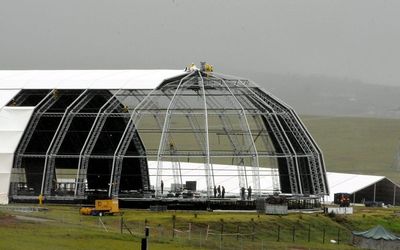
WORK IN PROGRESS: The construction of a giant marquee in Qunu, Eastern Cape, for the funeral of Nelson Mandela nears completion. Picture: THE HERALD
THE week of mourning for Nelson Mandela has caused headaches for President Jacob Zuma. But his political strategists may yet pull a surprise out of the hat.
South Africans are drifting through a fog of bewilderment that will begin to lift only after Sunday’s burial service. Despite this disorientation, many observers expected some kind of popularity dividend. After all, Mandela has been inseparable from the African National Congress (ANC). His relationship with Zuma (whose career he resurrected in the early 1990s) has been supportive, even when then president Thabo Mbeki sacked him in 2005. And Zuma’s team had more than ample time to prepare for and exploit this week of grieving.
But somehow everything has fallen apart.
First, premature efforts to marshal popular sentiment — such as a truck bearing ANC slogans outside Mandela’s Houghton home — provoked hostile reaction. Christians, communists, capitalists, Cubans, lawyers and Latvians — everyone — have claimed Mandela as their own. His global status has made claims about his local affiliations seem almost frivolous.
Second, the government and the ANC messed up some basic groundwork. Citizens were discouraged from going to what turned out to be a half-empty stadium. The public address system did not work (and neither did the sign language interpreter). The memorial lacked human warmth.
Third, Zuma was obliged to speak in front of a Gauteng audience, embittered by the dismemberment of the ANC Youth League, sceptical about
e-tolling, and cynical about expenditure on Zuma’s Nkandla home. The cheers for former presidents FW de Klerk and Mbeki seemed calculated to deepen Zuma’s humiliation.
Presidential spokesman Mac Maharaj graciously conceded that crowd heckling does not represent a "crisis" of democracy. The SABC’s reported banning of footage that reflected badly on Zuma shows that his communications managers are out of touch with social media reality.
The problems for the geriatric presidential public relations machine are not yet over. Zuma now has to travel to Qunu for Mandela’s burial service. The collapse of public infrastructure in and around Mthatha have contrasted sharply with multiple proposed infrastructure investments in KwaZulu-Natal.
If the media were to focus on the sharp discrepancy between the millions lavished on Nkandla and the dereliction of the Eastern Cape, further anti-Zuma sentiment could quickly erupt.
Maharaj is a wily bird, however, and he may well have a plan to turn this situation to Zuma’s advantage. In 2009, Zuma quietly declared the "rehabilitation" of Mthatha a "presidential priority programme".
A refurbished Mthatha Airport, with a 3km runway, was officially opened in July. The N2 has been upgraded and additional lanes added to cater for traffic from Mthatha and East London. Impressive new bridges and flyovers have been constructed to reduce journey times and minimise interaction with the local citizenry and their cattle.
Massive earth-moving machinery was even reported to have entered the Mandela compound and the family’s private graveyard. It seems likely that work has been done to upgrade facilities in and around Mandela’s home.
Mandela’s grandson, Zwelivelile Mandla Mandela, and Eastern Cape local government and traditional affairs MEC Mlibo Qoboshiyane implausibly told reporters earlier this year that these numerous projects were a matter of routine investment.
Cameras from the state broadcaster can be expected to linger lovingly on the results of this significant infrastructure spending.
Meanwhile, a huge security presence is expected to discourage journalists from probing too energetically into the shambolic public services and institutions that lie outside Qunu and beyond its road and air transport corridors. The implication of equating Qunu with Nkandla will be clear: those who criticise Zuma for his palace are by the same token condemning Mandela.
• Butler teaches politics at the University of Cape Town.


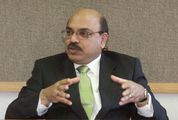

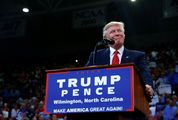





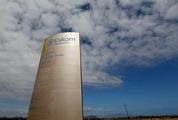
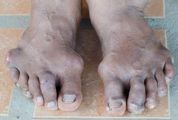
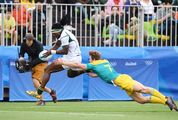

 News and views on the death, and life, of former president Nelson Mandela, with tributes and photographs
News and views on the death, and life, of former president Nelson Mandela, with tributes and photographs




